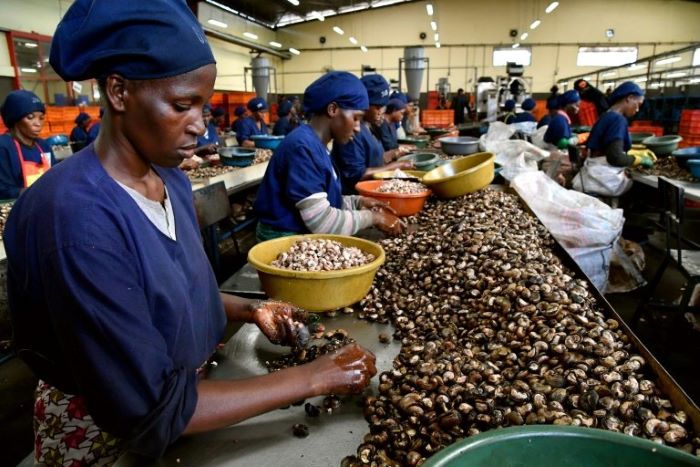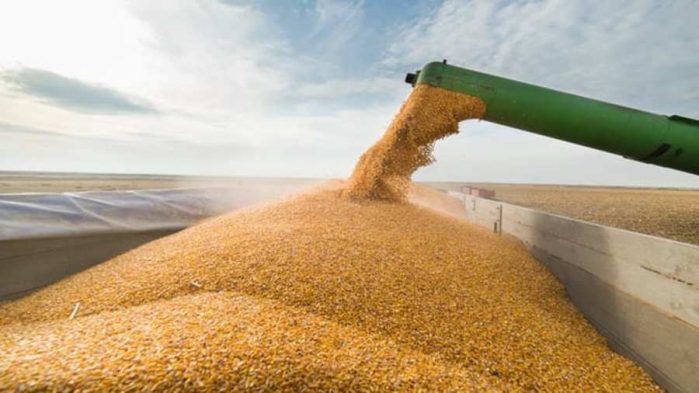Côte d’Ivoire has highlighted the opportunities for international investors in its cashew and cotton sectors in a presentation to the 10th annual African Green Revolution Forum (AGRF) event delivered by Simplice Gué, Director of Information Systems, Studies and Foresight at the Côte d’Ivoire Cotton and Cashew Council (CCA) and Moussa Gbané, Associate at Tony Blair Institute (TBI).
The CCA’s presentation at AGRF, which is being held virtually this year due to Covid-19,was supported by its strategic partner for the cashew and cotton value chains transformation, the Tony Blair Institute (TBI).
Côte d’Ivoire’s ‘strong and growing’ agribusiness sector
Speaking on behalf of the CCA’s General Director Dr Adama Coulibaly, Mr Gué told the audience said that the Government’s strategic vision was for Côte d’Ivoire to become ‘an industrialized and emerging country’.
He said that Côte d’Ivoire’s strong and growing agribusiness sector was driving a structural transformation of its economy, adding that the country’s economy was one of the most promising in West Africa in terms of both foreign direct investment and domestic investment, with average GDP growth of 8.5% per year since 2012.
“With 40% of the GDP of the West African Economic and Monetary Union (UEMOA), Côte d’Ivoire is a gateway to investment in the region, and, beyond that, access to the market of 340 million people that is ECOWAS.”
Cashews
Mr Gué said that Côte d’Ivoire is the leading destination for creating value in the agriculturesector, emphasizing its Government’s sustained support and in particular the resilience of its cashew sector:
“In little more than a decade, we have gone from a medium-level producer of raw cashewnuts to the world’s largest producer and exporter.”
“This year, production remained resilient in the face of the challenges from the Covid-19 crisis. We anticipate a production of around 906,000 tons in 2020, and we forecast steady increases in production for the next five years.”
Mr Gué highlighted the comprehensive investment policies adopted by the Côte d’Ivoire Government in support of the cashew sector, saying that this had made it the continent’s leading processor of cashews, with more than 30 businesses investing in processing to date.
Mr Gué said that in the last 10 years, cashew processing capacity had increased by morethan 800% in Côte d’Ivoire, adding that the sector is part of its Government’s strategic vision for the development of the country:
“The State’s goal to process 50% of its cashew production is part of a broader strategy tostructurally transform the economy of Côte d’Ivoire: capturing more value-addition in-country by shifting from the export of raw materials to processed products.”
“The Government is committed to the development of the sector through the creation of CCAin 2013, the adoption of a generous fiscal regime and incentive structure, and the comprehensive investment and upgrading of the entire value chain through the Cashew Value Chain Competitiveness Project (CVCCP) supported by the World Bank.”
Cotton
Mr Gué emphasised the progress that Côte d’Ivoire has made in becoming Africa’s third largest producer of cotton, with an estimated production of 490,423 tons in 2020.
With cotton quality and production levels rising, Mr Gué stressed its Government’s desire for increased investment to meet its ambitions to transform raw cotton at every stage of the value chain, saying: “Côte d’Ivoire has an ambitious, large-scale and sustainable project for its cotton value chain.”
The Tony Blair Institute
Moussa Gbane of the Tony Blair Institute said that sustainability and respecting environmental and social standards are a major part of the Côte d’Ivoire Government’s strategy for the re-establishment of a textile industry in the country:
“Until now, Côte d’Ivoire sells its cotton at the raw stage, just after harvest and ginning operations, which are low value-added activities. The Government of Côte d’;Ivoire, in line with its strategy to increase the added value from its agricultural resources, is looking for sustainable and large-scale investments to bridge the gap between its cotton production and the manufacturing of textiles and clothing.”
AgDevCo
Ismail Sentissi, Director of Investment of AgDevCo, a social impact investment institution operating exclusively in the agricultural sector on the African continent, said that his organisation was interested in investing in Côte d’Ivoire. Mr Sentissi told the audience: “We hope to extend our investment portfolio to several agricultural sectors in the country.”









